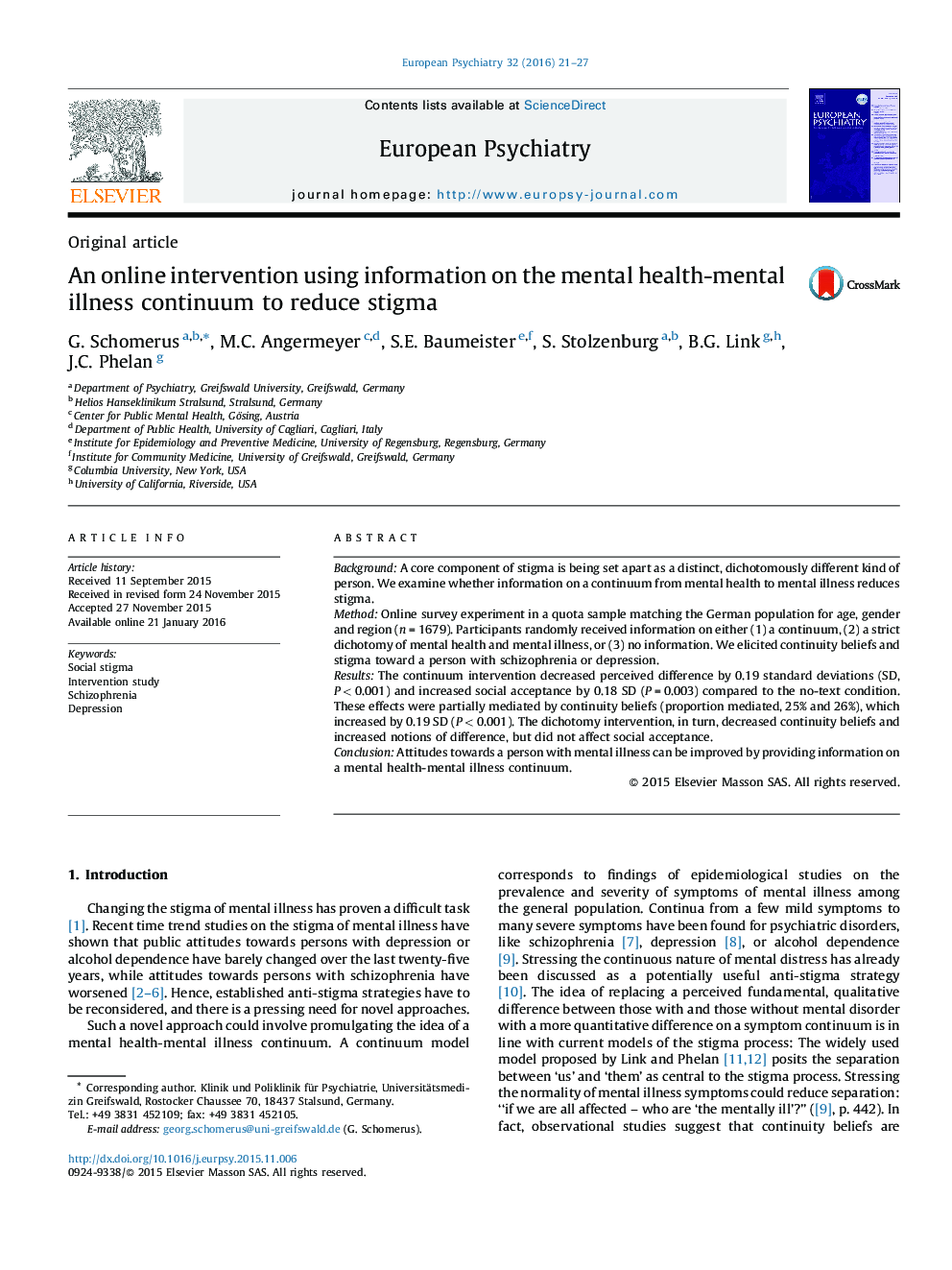| Article ID | Journal | Published Year | Pages | File Type |
|---|---|---|---|---|
| 4183575 | European Psychiatry | 2016 | 7 Pages |
BackgroundA core component of stigma is being set apart as a distinct, dichotomously different kind of person. We examine whether information on a continuum from mental health to mental illness reduces stigma.MethodOnline survey experiment in a quota sample matching the German population for age, gender and region (n = 1679). Participants randomly received information on either (1) a continuum, (2) a strict dichotomy of mental health and mental illness, or (3) no information. We elicited continuity beliefs and stigma toward a person with schizophrenia or depression.ResultsThe continuum intervention decreased perceived difference by 0.19 standard deviations (SD, P < 0.001) and increased social acceptance by 0.18 SD (P = 0.003) compared to the no-text condition. These effects were partially mediated by continuity beliefs (proportion mediated, 25% and 26%), which increased by 0.19 SD (P < 0.001). The dichotomy intervention, in turn, decreased continuity beliefs and increased notions of difference, but did not affect social acceptance.ConclusionAttitudes towards a person with mental illness can be improved by providing information on a mental health-mental illness continuum.
